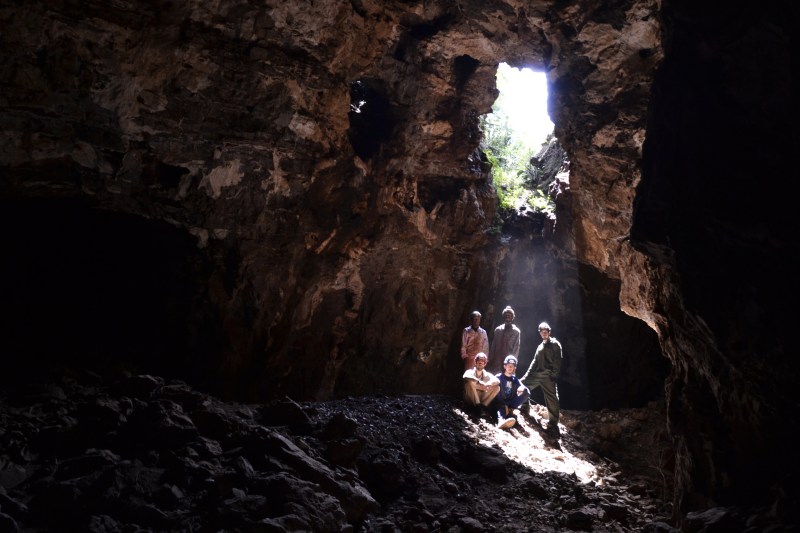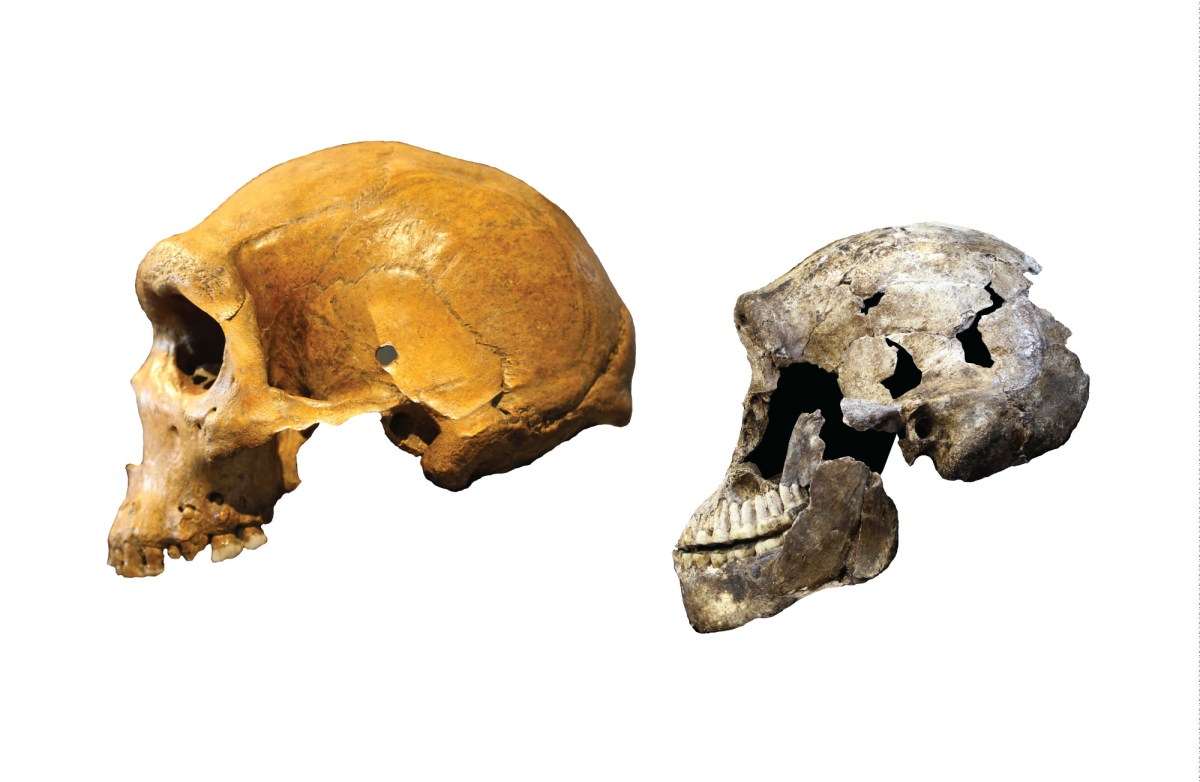An extraordinary discovery from dating new set of fossils has upended what scientists previously believed about humanity’s ancestors.
The new evidence now suggests that a primitive form of hominid thought to have died out as modern humans evolved actually lived alongside our ancestors for a millennia, National Geographic is reporting.
”Lucy” and ”Neo”. Left: ”Lucy” skeleton of Australopithecus afarensis, 3.2 million years old. Right: ”Neo” skeleton of Homo naledi, 250,000 years old. (Photo: Wits University/ John Hawks)New papers published today by University of the Witwatersrand researchers details the dates of the fossils, belonging to Homo naledi, which were first discovered deep in a South African cave in 2015.

The team estimates that the bones date back between 226,000 to 335,000 years ago, making Homo naledi very successful in an evolutionary sense. The age also puts them much closer than previously thought to the earliest known Homo sapiens.
This article appeared in an InsideHook newsletter. Sign up for free to get more on travel, wellness, style, drinking, and culture.

























